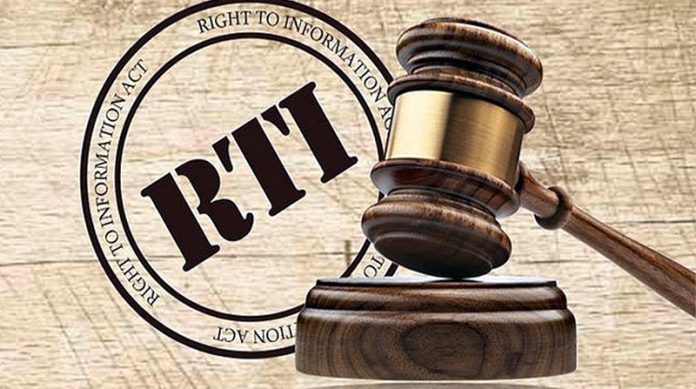The RTI Act stands as a cornerstone of democracy, empowering citizens with the ability to hold public authorities accountable. However, recent revelations in the UT of Ladakh paint a concerning picture of non-compliance and inefficiency. With eighty-eight public authorities failing to onboard Public Information Officers (PIOs) and First Appellate Authorities (FAAs) onto the RTI portal and around twenty-two departments failing to adhere to prescribed timeframes for disposing of RTI applications, it’s evident that urgent action is required to uphold the principles of transparency and accountability.
The launch of the RTI portal in Ladakh last year was a commendable step towards embracing digital governance and facilitating citizen engagement. Developed in collaboration with the National Informatics Centre (NIC), Karnataka, the portal mirrored the successful model of Karnataka’s RTI platform. The GAD’s efforts to conduct training sessions for nodal officers and facilitate the onboarding process underscored a proactive approach to implementation. However, the effectiveness of such initiatives hinges on the commitment of public authorities to comply with directives and ensure seamless functionality. The lack of compliance from numerous departments raises serious questions about institutional accountability.
The list of public authorities without designated PIOs and FAAs spans critical sectors ranging from food and civil supplies to education and healthcare. These omissions not only undermine the spirit of the RTI Act but also hinder citizens’ fundamental right to access information. Transparency should not be an option but a fundamental principle guiding governance, and all departments must fulfil their obligations promptly. Furthermore, the backlog of RTI applications languishing in bureaucratic limbo reflects systemic inefficiencies that erode public trust. The failure to adhere to prescribed timeframes not only violates statutory requirements but also impedes the timely dissemination of information, undermining the very purpose of the RTI Act. It is disheartening to see departments entrusted with vital responsibilities, such as healthcare and education, falling short in fulfilling their duties towards citizens.
In response to these lapses, the directive issued by the Administrative Secretary of the General Administration Department underscores a commitment to accountability and corrective action. The deadline set for onboarding PIOs and FAAs, along with the mandate to dispose of pending RTI applications promptly, signals a concerted effort to address the prevailing challenges. However, mere directives are insufficient without robust mechanisms for monitoring and enforcement. Administrative Secretaries, heads of departments, and other stakeholders must prioritise compliance with RTI provisions and ensure that the requisite steps are taken to rectify existing deficiencies. This necessitates a comprehensive review of internal processes, the allocation of resources, and capacity-building initiatives to equip officials with the necessary skills and knowledge. Moreover, accountability mechanisms should be strengthened to track progress and hold errant departments accountable for lapses in compliance. The administration must impose consequences for non-compliance, including penalties and disciplinary action against responsible officials. Regular audits and monitoring mechanisms are essential. Public disclosure of RTI-related data can serve as an effective tool for fostering transparency and driving institutional change.
Beyond bureaucratic measures, fostering a culture of transparency requires a shift in mindset, where openness and responsiveness become intrinsic values guiding administrative practices. Public participation and civil society engagement play a crucial role in advocating for accountability and ensuring that the principles enshrined in the RTI Act are upheld in letter and spirit. As Ladakh charts its path towards development and governance reform, it must prioritise the principles of transparency, accountability and citizen engagement. Adhering to RTI provisions is not merely a legal obligation but a moral imperative in a vibrant democracy. Ladakh is striving to build public trust and strengthen democratic institutions. As such, the challenges highlighted in RTI compliance serve as a wake-up call for the administration to reaffirm its commitment to transparency and accountability. Timely action, institutional reforms, and a collective effort towards fostering a culture of openness are the needs of the hour.


